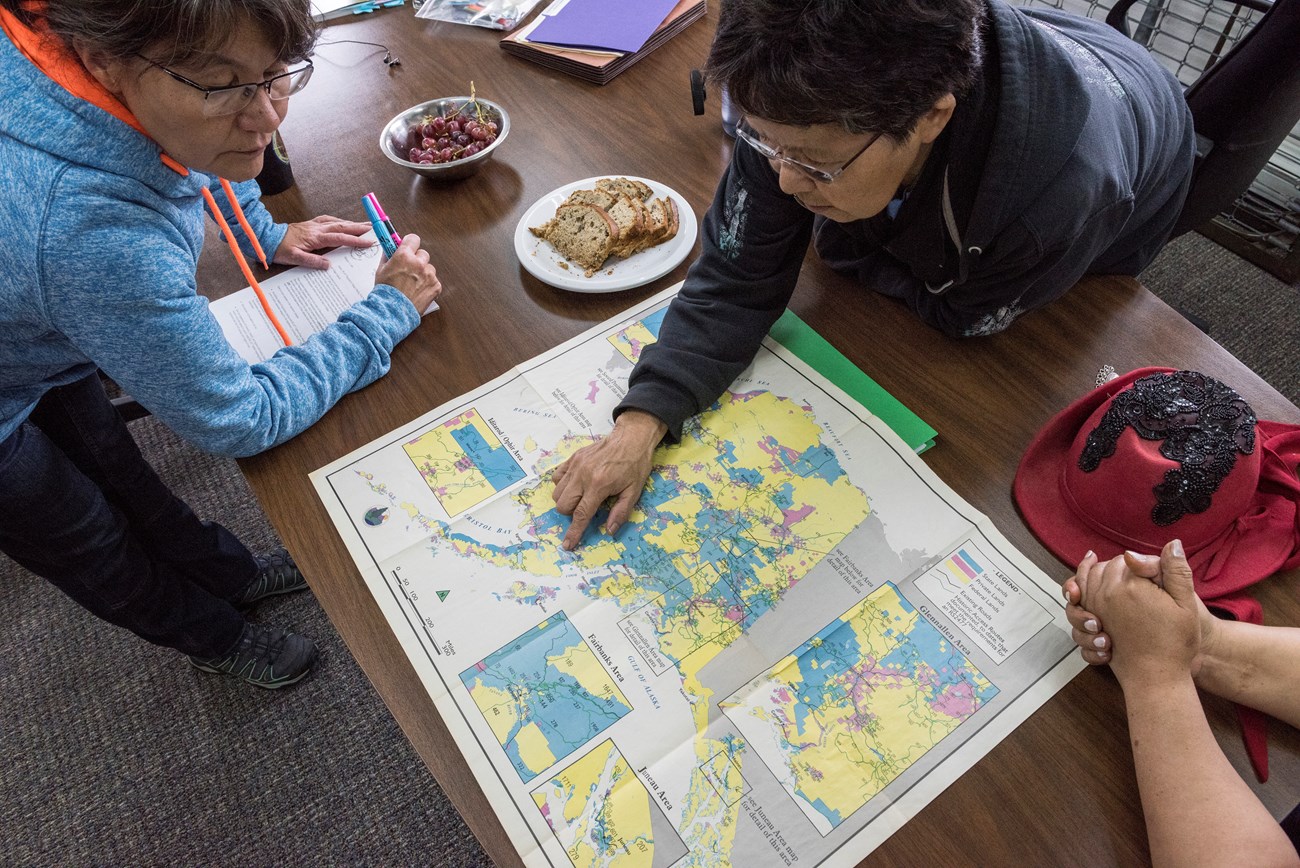Our MissionLake Clark National Park and Preserve is dedicated to preserving history and passing along an appreciation of our shared history to the public and to the next generation. The Park has responsibilities that include stewardship of historic buildings, museum collections, archaeological sites, cultural landscapes, oral and written histories, and ethnographic resources. Archeologists, historic architects, curators, ethnographers, and historians work with the community to preserve these resources because they are important components of our shared national and personal identity. 
NPS/D. Khalsa A Place Where People Still Gather Qizhjeh Vena, meaning ‘a place where people gathered lake’ in Dena’ina, is the original name of Lake Clark. Find out more about modern subsistence use in Lake Clark, or browse the information below to learn more about the people, places, and stories that make this such a unique part of the world. The People of Lake Clark Lake Clark's first people are of Alaska Native descent and came to this region a millennia ago. In more recent times, Russian explorers and missionaries arrived in the 18th century, quickly followed by prospectors, trappers, and entrepreneurs from Western Europe, Canada and the United States. Despite this relatively rapid exposure to the wider world, the native communities of the region retain their traditions and languages. Today's Lake Clark is a mix of various ethnicities, founded upon a collaborative history. Special Places The park contains numerous sites with with special meanings, including places that are on the National Register of Historic Places. From ancestral trails to historic cabins and modern communities, explore the many special places in Lake Clark National Park and Preserve. Stories Whether they are historic --told down through generations of Alaskans-- or more recent and recorded, in the wilderness of Lake Clark stories often feature the conflict of person versus nature. We invite you to find inspiration and imagination by reading some of Lake Clark's most notable stories. Preservation From oral history recording to historic journal editing to archeological surveys and musem collections, Lake Clark's team helps preserve America's history. Physical objects can tell as much of a story as a book or storyteller. The park's collections team preserves objects and specimens from a diverse range of subjects. These items tell the story Lake Clark's people, cultures, and history. Explore the park's natural and cultural museum collection. |
Last updated: August 27, 2022
